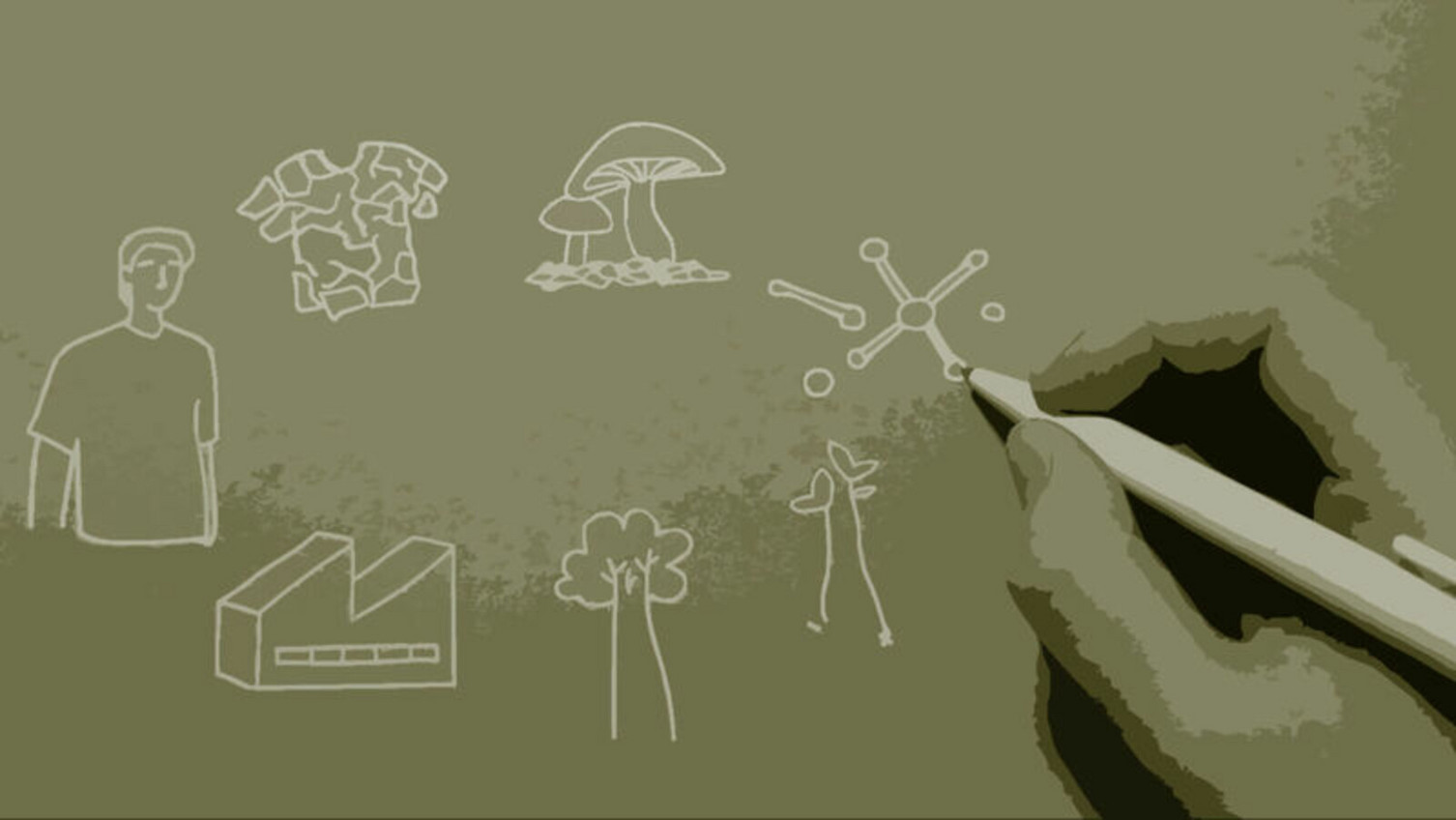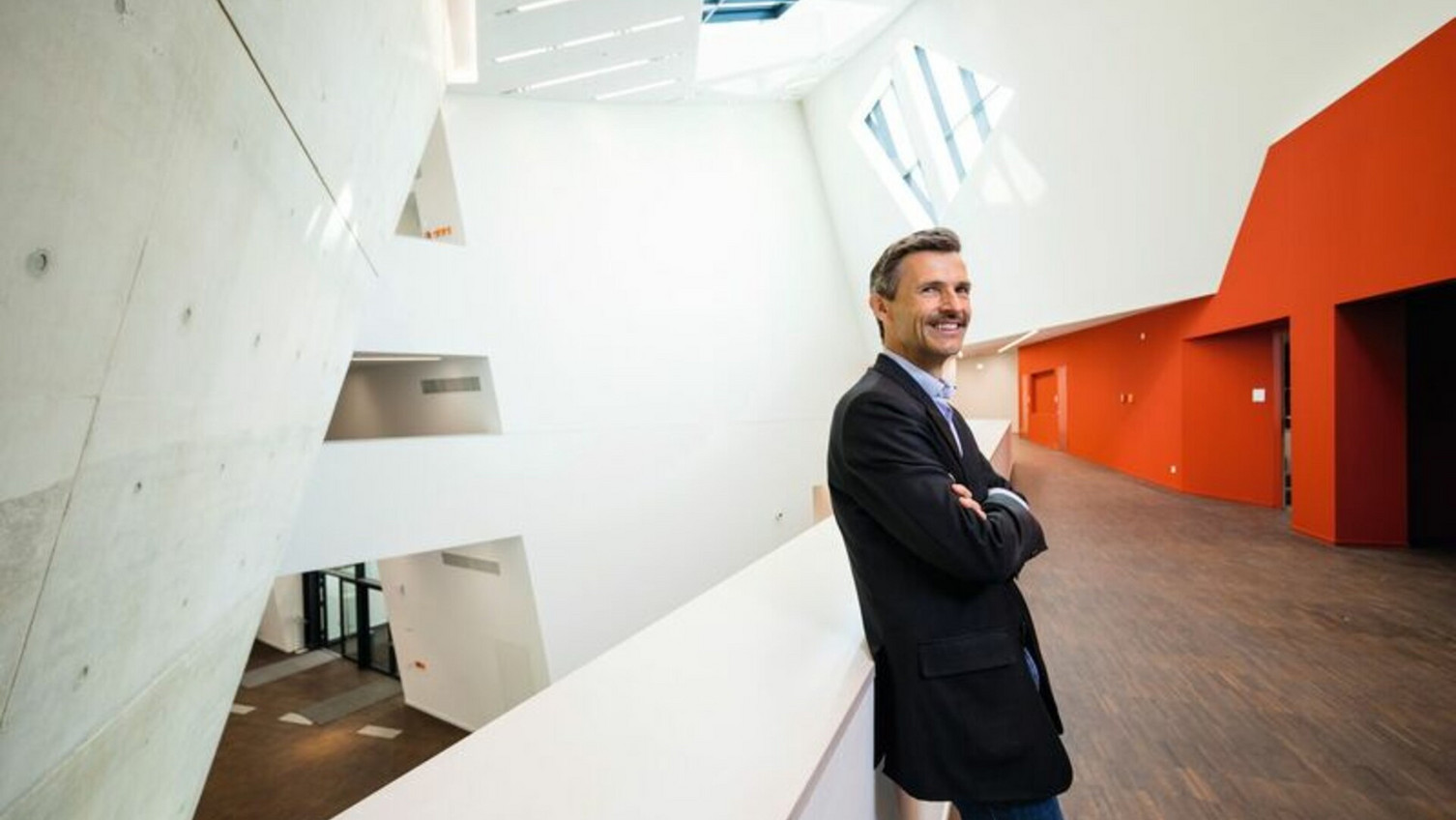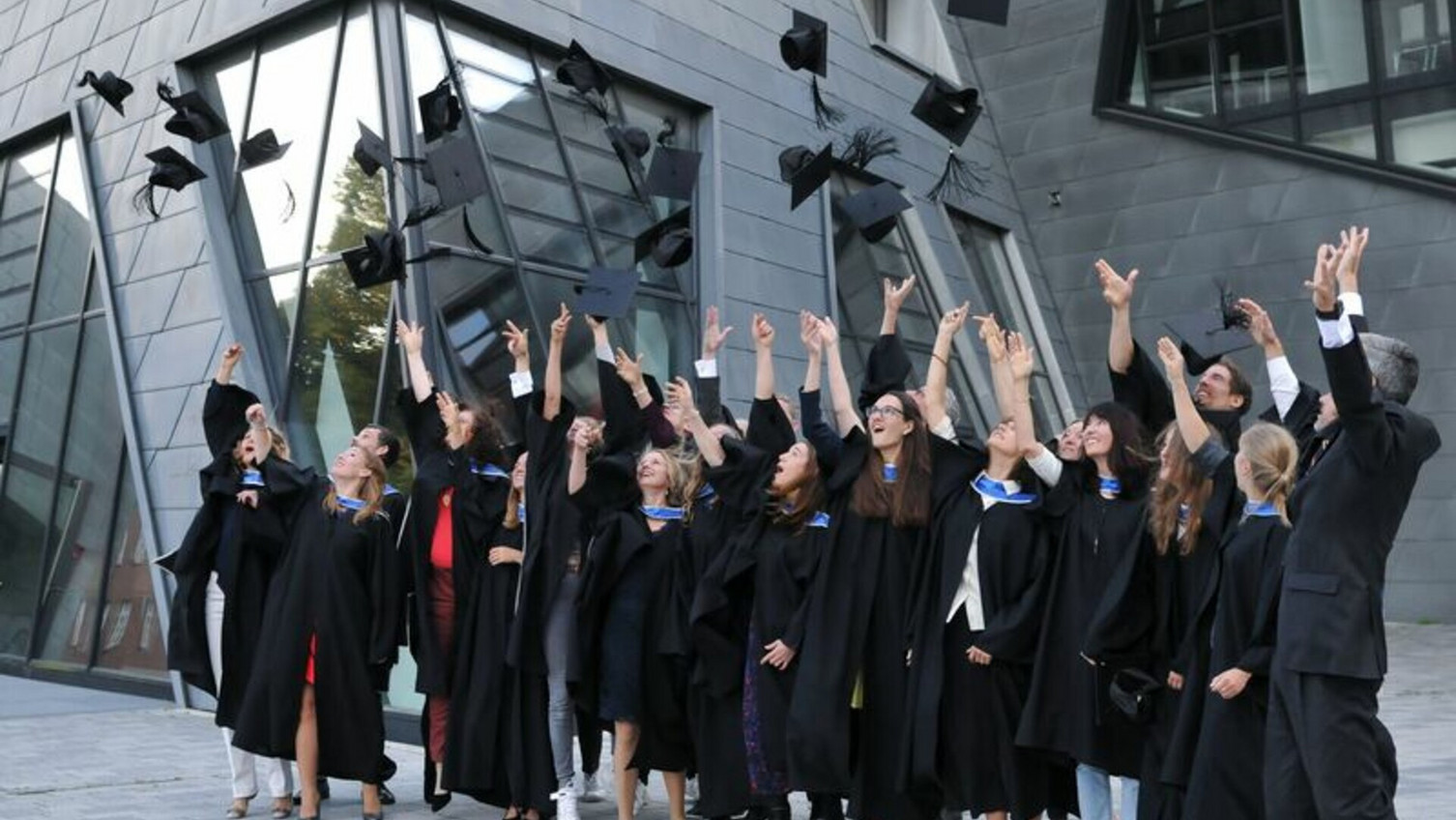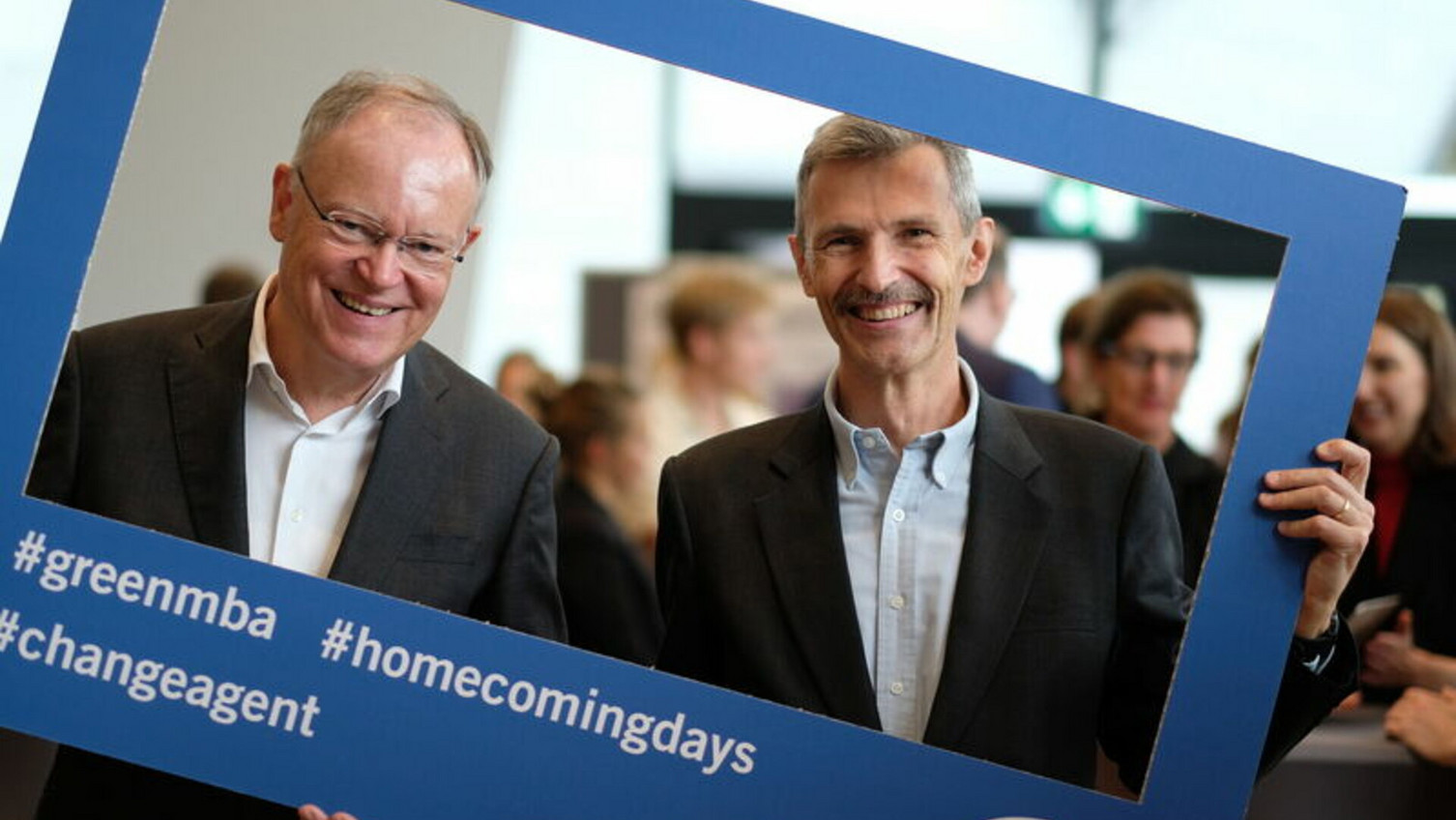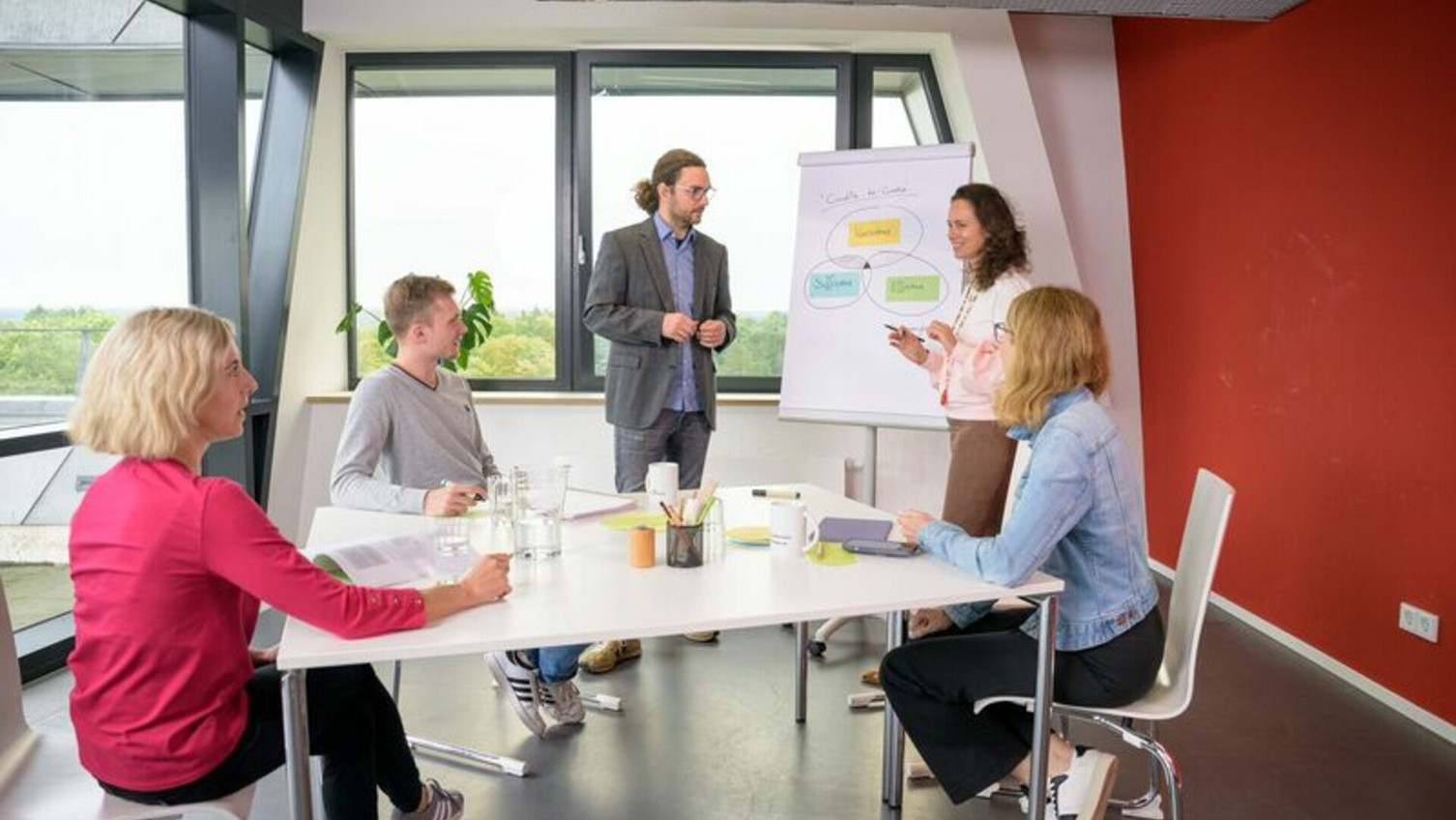20 years of MBA Sustainability Management
cum tempore (c.t.): The Dossier Series for Science, Research, and Teaching at Leuphana
2024-01-01 At this point, we would like to take a little more time than the standard academic quarter and introduce our new series "cum tempore (c.t.)", which will explore Leuphana's archives. Inventions, new findings and projects are the results of long, often challenging processes. The new cum tempore (c.t.) dossier aims to place research reports, news and portraits in a wider context: How do economic players in the Global South benefit from the research successes of the Institute for Sustainable Chemistry? What can Sustainable Finance and Accounting do for a stable economy? What makes Leuphana's original study model a successful concept? From now on, you will find detailed insights into research, teaching, and academic life at Leuphana University Lüneburg right here.
Twenty years ago, Prof. Dr Dr h.c. Stefan Schaltegger and his team launched the world's first MBA programme in sustainability management as an "academic entrepreneur". To this day, the part-time programme is the largest and leading of its kind. It enables individuals to effectively implement sustainability with and in companies and supports them after graduation with a strong alumni network.
Today, an unmissable change in sustainability is underway in all areas of the economy and society. Even if sustainability awareness was less pronounced at the time the MBA Sustainability Management was founded than it is today, there were already clear signs that companies needed to be managed more sustainably. In the 70s, 80s and 90s, there were more and more reports of chemical accidents: A warehouse belonging to the pharmaceutical company Sandoz caught fire in Basel. The extinguishing water coloured the Rhine blood red as far as Cologne. The highly toxic dioxin was released in the Seveso accident in northern Italy. The Bhopal disaster also occurred at that time: a toxic gas cloud was released from a chemical plant in India. Thousands of people died. Issues such as forest dieback and the ozone hole also dominated the headlines. Nevertheless, sustainability issues were not seriously considered in management practice or theory. This was the starting point for Stefan Schaltegger and his team to think more fundamentally about modern management training.
"Necessity as well as opportunity"
The MBA Sustainability Management was born out of the idea of developing a study programme that would enable graduates to make an effective contribution to the sustainable development of organisations and society. Stefan Schaltegger remembers the challenge: "My team and I realised that environmental science graduates rarely get into management positions due to a lack of sufficiently broad management knowledge and that business graduates are unable to build up enough sustainability expertise as part of an elective subject. We had to rethink and combine everything." There were only a few MBA programmes in Germany and none on sustainability worldwide. "Based on our analysis of what is needed for sustainable development through entrepreneurship, we recognised this starting position as both a necessity and an opportunity."
The beginning was characterised by adversity and resistance: Twenty years ago, the topic was nowhere near as present as it is today. Although the development of the degree programme was supported by the EU, state funding was not made available at short notice for procurement law reasons: "We then continued working with half the size of the team." The group spent two years developing an innovative study concept: "We asked ourselves: What should an education programme look like that brings people into decision-making positions on the one hand and provides them with sufficient expertise in sustainability management on the other? We want to change companies from the inside out," emphasises Stefan Schaltegger.
"Our course was the first programme of its kind in the world."
The answer was an MBA like those offered by the top business schools, but with more meaningful content for sustainable corporate management: "Our course was the first programme of its kind in the world." A blended learning concept was used right from the start to appeal to people in professional life: The first students were still given a CD with teaching materials. Today, many courses run online, with live meetings, networking events and digital teaching materials. However, the final workshop, for example, takes place in person at a company such as Lufthansa, Mercedes, IKEA, Budni or Vaillant, but also at pioneering companies such as Werkhaus, Edding, Memo or Neudorf. Students have to solve an actual problem in the company on site. They have just under four days to do this. On the fifth day, the students present their concepts to a jury of experts and management from the company. They have 14 minutes to do this - no more and no less.
The MBA Sustainability Management was designed to be international from the outset: students come from Germany, Austria and Switzerland: "But we also have Germans who work in Chile, Norway or Australia and are completing our programme," reports Stefan Schaltegger.
The number of applicants for places on the programme is high every year: "We often see impressive CVs and very successful careers. People don't study with us to get a higher salary or to take the next step on the career ladder. People who study with us want to give their professional life more meaning." Evaluations of the programme show that one year after completing the MBA, 80 percent go on to work in their own or another company, which they consider to be more meaningful than the previous one. This is often associated with a higher salary or a higher status, even if this was not the intention.
MBA Sustainability Management network now consists of around 1000 people
Stefan Schaltegger and the MBA support team are still in contact with many graduates from previous years. The MBA Sustainability Management network now consists of around 1000 people. Claudia Kalisch, for example, is an alumna of the fourth year and is now Mayor of the city of Lüneburg. Florian Meyer-Delpho founded the company "Installion", which uses a platform to support technology companies and trade businesses to realise solar systems more quickly. Tobias Peylo, second year, is now a professor at Kempten University of Applied Sciences and teaches on the MBA Sustainability Management programme. The number of alumni and sustainability managers is growing, as is public awareness of the topic.
"A lot has changed in terms of applications. More and more companies are sending us their employees and paying the tuition fees. In the past, companies often said that sustainability only costs money and time. These reservations are becoming less and less common. On the contrary: sustainability is becoming more and more complex in companies because it is becoming clearer that all areas are affected, from purchasing to production, marketing and logistics. If a company is subject to emissions trading, one person is often involved in carbon accounting. The interest in hiring people with sound sustainability expertise has increased substantially," explains Stefan Schaltegger.
The degree programme shows that these people can come from a wide range of professional fields: "Some of our students have a first degree in economics, but we also have many natural scientists, humanities scholars, environmental scientists and engineers." A number of start-ups have been founded by students on the part-time MBA Sustainability Management programme who want to do business sustainably from the outset.
The MBA Sustainability Management has now been running for 20 years - a figure that Stefan Schaltegger and his team are proud of. It is particularly important to him that the continuous work has created a large network of alumni and students who support each other and effectively promote sustainability.
CSM further education programme on sustainability management is growing
The MBA Sustainability Management programme starts every spring. As the demand for specialised sustainability skills in companies continues to grow enormously, the Centre for Sustainability Management (CSM) has expanded its family of further education courses in sustainability management. In addition to the established MBA programme, there are compact certificate courses on current fields of action in corporate sustainability - from supply chains and the circular economy to sustainability reporting and decarbonisation management. Those interested can study part-time online and acquire a comprehensive set of methods and tools within six months.
Contact
Prof. Dr. Dr. h.c. Stefan Schaltegger
Universitätsallee 1, C11.311
21335 Lüneburg
Fon +49.4131.677-2180
stefan.schaltegger@leuphana.de

